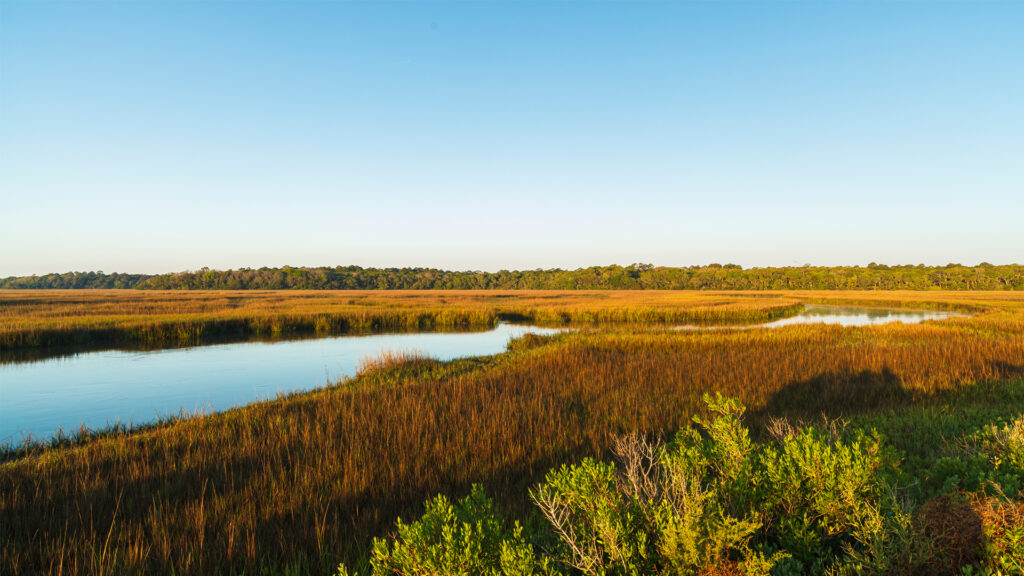By Taylor J. Burgess
A recent story out of New Jersey highlighted a growing concern faced by coastal communities across the United States: saltwater intrusion into freshwater sources.
Currently, rising sea levels and drought are pushing saltwater up the Delaware River, threatening drinking water supplies for millions, including Philadelphia. In response, officials are releasing reservoir water to help push the saline intrusion downstream. Meanwhile, Florida’s struggle is occurring underground, where saltwater is infiltrating vital freshwater aquifers.
In Florida, over-extraction from the Floridan Aquifer, combined with rising sea levels, has allowed saltwater to encroach on the state’s freshwater reserves. This issue is particularly pressing in cities like Jacksonville, where 90% of drinking water comes from underground aquifers. With Florida’s population growing by more than 1.1 million people from 2020 to 2023, the demand for water continues to rise.
In South Florida, municipalities have had to relocate wellfields inland as a temporary and costly solution to saltwater intrusion. As climate change accelerates, the question remains: How much longer can our aquifers withstand this strain before damage becomes irreversible?

A key part of addressing this challenge is the protection and restoration of wetlands, which play an essential role in maintaining water quality and mitigating saltwater intrusion. As a graduate student studying soil and water science at the University of Florida, I’ve learned how wetlands serve as natural buffers that protect freshwater supplies.
Wetlands improve water quality through several key processes including nutrient removal, organic material processing and sediment reduction.
Water entering wetlands via surface inflow, groundwater discharge or tides often exits with improved quality due to the filtering and transformation of nutrients, suspended solids and toxins. Wetlands retain nutrients through physical processes like sedimentation and biological processes such as nutrient uptake by plants and microbes.
They also help remove toxic substances by adsorbing and absorbing pollutants, which are either incorporated into biomass or degraded into less harmful forms. Wetlands along rivers, streams and coastal areas reduce sediment by slowing water flow during floods, allowing suspended materials to settle.
The Everglades, for example, supports biodiversity while recharging the Biscayne Aquifer, which provides water to millions in South Florida. Restoration projects like the Comprehensive Everglades Restoration Plan aim to restore the region’s hydrology, ensuring wetlands can continue their vital functions in water filtration, freshwater recharge and saltwater intrusion prevention.

The restoration plan offers substantial economic returns, with every $1 invested potentially generating $9 in benefits.
Saltwater intrusion is not confined to Florida or Delaware; it is a national issue. From coastal California to the Gulf of Mexico, it is driven by climate change and unsustainable water management practices. This is not an argument for one solution over another, but a call to recognize the importance of protecting our water systems.
As we face mounting pressures from climate change and growing populations, balancing development with conservation has never been more crucial. The decisions we make today will shape the future of our water security and it is essential that we prioritize the ecosystems that sustain us.
Taylor J. Burgess is a graduate student in soil and water science at the University of Florida. He lives in Jacksonville. This opinion piece was originally published by the Times-Union, which is a media partner of The Invading Sea. Banner image: A bridge carries traffic over the Intracoastal Waterway in Jacksonville (iStock image).
Sign up for The Invading Sea newsletter by visiting here. To support The Invading Sea, click here to make a donation. If you are interested in submitting an opinion piece to The Invading Sea, email Editor Nathan Crabbe at ncrabbe@fau.edu. To learn more about how rising sea levels affect Florida’s drinking water, watch the video below.



